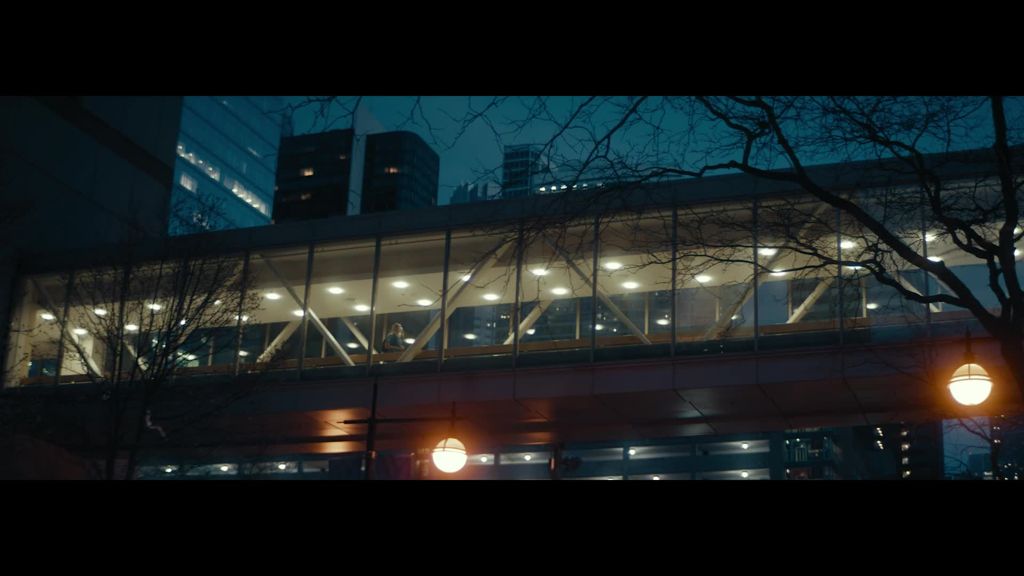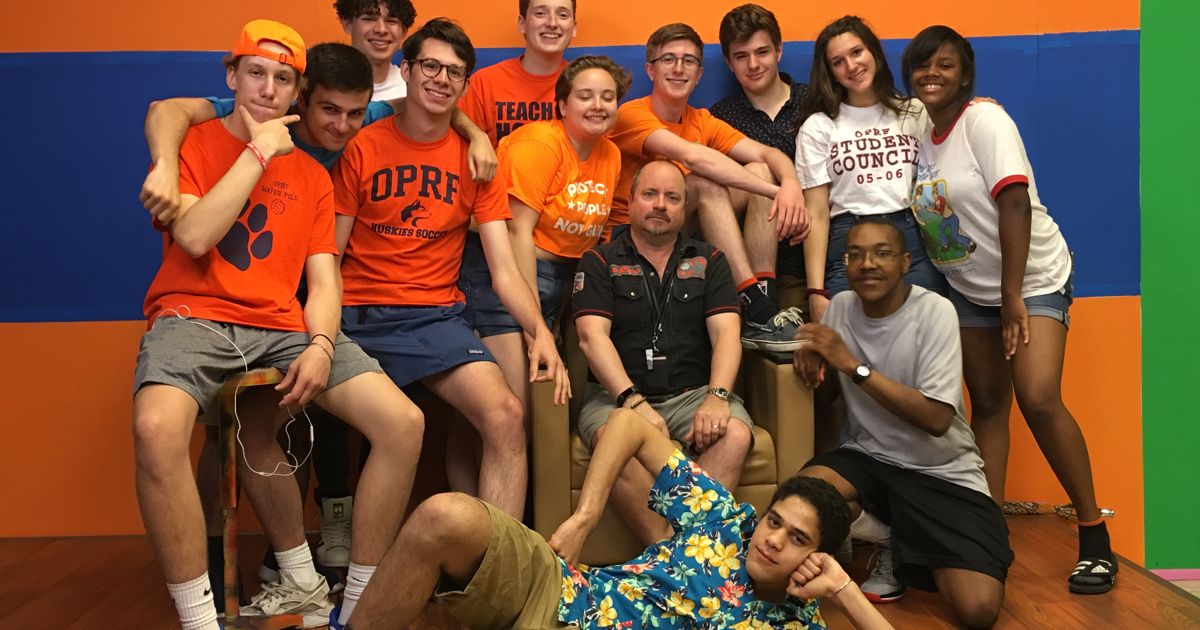John Condne's back to school program
As a school teacher and Executive Producer for Minimal Productions, John Condne has a lot on his plate. Here, he shares some insights about working with kids just before High School semester starts back up.
In between two demanding careers, Minimal Production's John Condne found time to answer a few questions about teaching children and working on commercials and documentaries
How do you balance being a teacher at a public school and an Executive Producer?
It's a fine balance between the two jobs. During the school day I’m working with students in my TV Production, Intro to Broadcasting, Creative Filmmaking, and Newscene classes. I really enjoy working with young people. They are full of energy and so many are creative and already have skills.
I pride myself on working with students and eventually working with them as professionals.
For my EP job at Minimal Productions, I check in with both of my partners before I get to school. During my lunch period, the three of us regroup and I work on Minimal jobs. As soon as the school day ends, I immediately jump on producing jobs for the company. Additionally, since I am off during the summer, I put in even more time on Minimal.
What's the setup like at Oak Park and Forest River High School?
I work in Oak Park, which is a very diverse city and has a wide range of family incomes. My documentary miniseries, America to Me, (which can be seen on Starz and Amazon Prime,) focuses on race at our high school. One of the subjects covered in the documentary is that our school is one of the most funded districts in the state. Many students come back after college and tell me that our space was better than their colleges and universities. My program has all the necessary equipment to give all students. Every student, regardless of economics, has access to gear and computers.
Can you describe the program you developed to bring students into advertising/film?
When I first started at OPRF, I knew that I wanted the high school TV studio to be like a real news studio, as well as a post-production facility. The production industry is based on teamwork, so I run my class like a production company, working in teams on projects. Commercials, documentaries, features...everything is based on teamwork and collaboration.
Knowing your skill is vital, but I will take a less skilled person with the right attitude over a more skilled person who is a pain to work with.
What are your goals for this program? What are the goals of the participants?
I want to give the students as much “real-world” experience as possible. This means having up-to-date equipment and technology and showing them how it works in an industry setting. If someone in class wants to go into this business, I bring them onto one of my sets as a production assistant. I often pair them up with a former student in a paid position on my set and they get to see what actual production looks like.
More and more mentorship programs are appearing, a lot of them based out of production companies or ad agencies. What is the role of companies to uplift and support the new generation?
I pride myself on working with students and eventually working with them as professionals. On one of my latest commercials, of my 30 person crew, 10 of them were either current or former high school students. This included my DP who was making $2500 per-day salary.
If you want to bring these young hungry film students on set, it’s best to assign them to work with someone that you trust and that is comfortable working with students.
I can recognize students who really want to be in this industry. They are the ones who take all my classes, hang out in the TV studio whenever they can, and work with other students who are similarly motivated. When you see that, you need to support them and help them whenever you can because they are looking for guidance. I often bring in former students who are in the field to talk to my current students, to show them that it is possible to be successful in the field. My best example is Kris Rey-Talley. When Kris was a senior in high school, I raised $100,000 to do a feature film that Kris co-directed. We shot for 18 days over the summer with 30 high school kids working all the crew positions. I had a few professionals (the DP, Gaffer, and HMU were pros,) but everyone else was a high school student. That was the start of my and Kris’ relationship. We have now been working together professionally for over 10 years and he is, along with, Will Meyers, one of the partners in our company, Minimal Productions.
Credits
powered by
- Agency O'Keefe Reinhard & Paul/Chicago
- Production Company Minimal Productions
- Director Simon Reinert
-
-
Unlock full credits and more with a Source + shots membership.
Credits
powered by
- Agency O'Keefe Reinhard & Paul/Chicago
- Production Company Minimal Productions
- Director Simon Reinert
- Chief Creative Officer Laura Fegley
- Copywriter Crystal Mason
- Senior Producer Austen Williams
- Executive Producer John Condne
- Head of Production Kris Rey-Talley
- Music Human Music & Sound Design/USA
- Composer Daryl Pinsdorf
- Music Lead Morgan Visconti
- Executive Producer James Dean Wells
- Sound Design, Mix & Finishing Utopic
- DP Simon Reinert
- Editor Simon Reinert
- Art Director Lori Bohner
- Colorist Jacob McKee
- Group Creative Director Aubrey Walker III

Credits
powered by
- Agency O'Keefe Reinhard & Paul/Chicago
- Production Company Minimal Productions
- Director Simon Reinert
- Chief Creative Officer Laura Fegley
- Copywriter Crystal Mason
- Senior Producer Austen Williams
- Executive Producer John Condne
- Head of Production Kris Rey-Talley
- Music Human Music & Sound Design/USA
- Composer Daryl Pinsdorf
- Music Lead Morgan Visconti
- Executive Producer James Dean Wells
- Sound Design, Mix & Finishing Utopic
- DP Simon Reinert
- Editor Simon Reinert
- Art Director Lori Bohner
- Colorist Jacob McKee
- Group Creative Director Aubrey Walker III
Do you have any advice to companies who want to talk mentorship, or, even better, apprenticeship?
It is unique for me because I'm in both school and advertising as an educator. If you want to bring these young hungry film students on set, it’s best to assign them to work with someone that you trust and that will be excited to work with a student. I always ask my crew if they are comfortable with a student assistant. Most often, the students work out great and really help out on set. You also need to be patient and remember that they are still kids and they make mistakes. You cannot expect the same level of professionalism as you do from your crew.
The production industry is based on teamwork, so I run my class like a production company, working in teams on projects
You worked on 16 and Recovering, can you tell me about that experience?
I got brought onto this project because of my success with America to Me coupled with the fact that I am a high school teacher. It was difficult working on 16 and Recovering because I had to watch these young people struggle, and often fail, with their addictions. We were in the school for a full year and it was a tough year for students at the school. While there were some successes, there were more failures, but there was always hope. As a teacher and parent, I see young people who often make serious mistakes because they think they are invincible. This show illustrates very clearly that is not true.
Do you have any advice to students who want to get into film but don’t know where to start?
The thing I always tell students is to be professional. I know this may be common sense, but as a producer, I have worked on sets with a few people that did not have the right attitude. You need to be “go with the flow,” be on time, and be a nice person.
I often bring in former students who are in the field to talk to my current students, to show them that it is possible to be successful in the field.
Knowing your skill is vital, but I will take a less skilled person with the right attitude over a more skilled person who is a pain to work with. Another thing I tell them is to network. Find other creative people to work on projects together. You never know when one of those relationships becomes a bridge into something more enduring.
)




 + membership
+ membership







